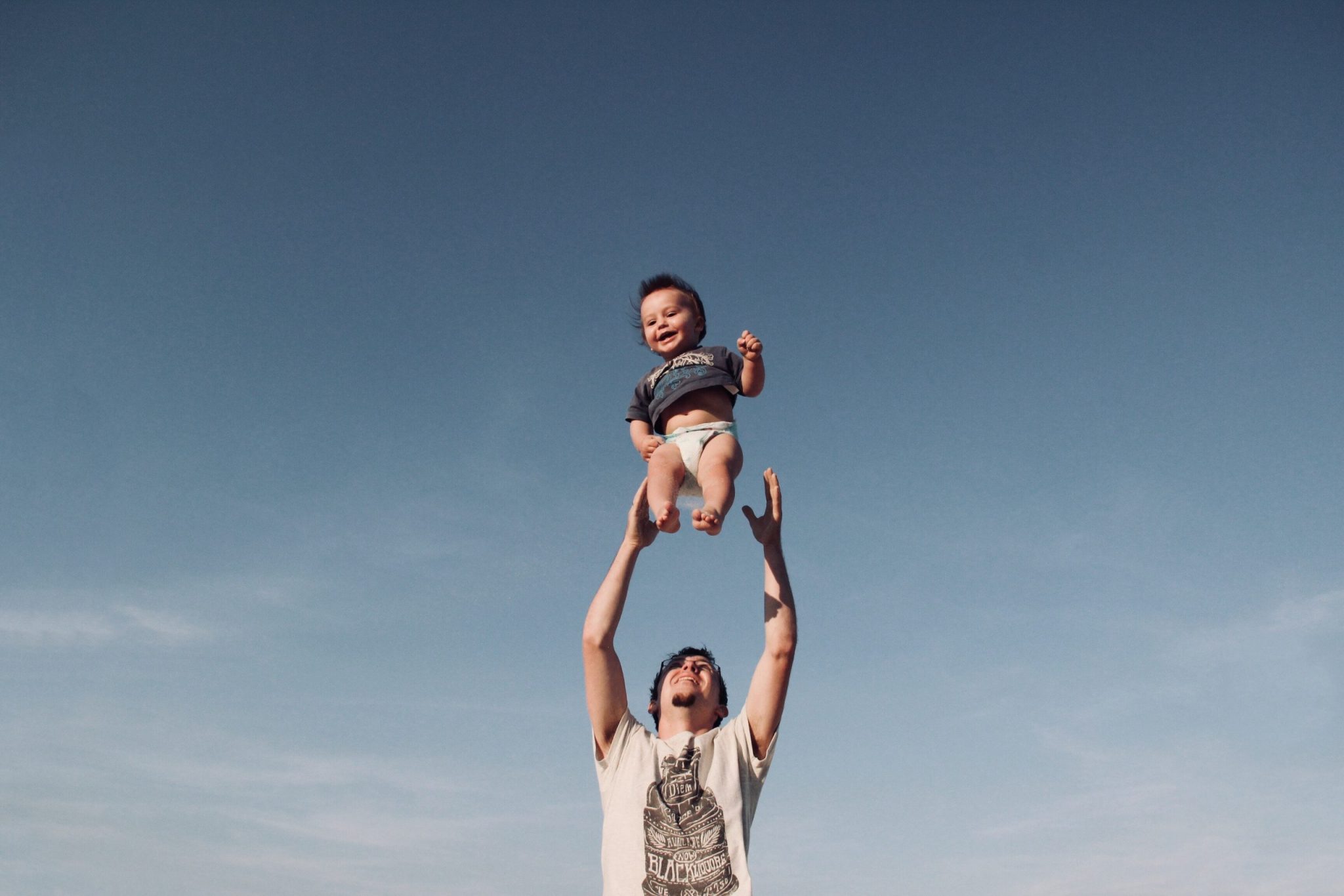All babies are born with potential. While your child may be verbally or linguistically smart (also known as word smart), another child may be musically intelligent. Some children love building block towers, while others like to paint.
Intelligence on its own refers to the general ability to process information that promotes learning, understanding, reasoning, and problem-solving. It can appear in many different forms. This is why there is no singular measure of intelligence in children.
As a parent, your main focus should be to help your child unleash their full potential.
Every parent cares about the development of intelligence in their child. Nurturing and supporting your child in ways to help boost their brain power is imperative.
We’ve listed 50 simple ways to help you boost your child’s brain development and support their physical and mental well-being. These methods are not hard to practice. You only need to embrace and spare some time for them. After all, that is what parenting is all about.
1. Take care of yourself during pregnancy
Brain development starts early when your baby is still in the womb.
A balanced diet and avoiding smoking and drug or alcohol use can help your child’s brain develop healthily and allow them to reach their full potential.
Regular healthcare during pregnancy can help prevent complications. It is also important to avoid stress-inducing activities and elements.
2. Address your baby’s needs
Babies must be loved, fed, and looked after to achieve optimal development. While these are only the most basic of needs, satisfying them goes a long way in aiding your child to develop to their fullest potential.
3. Breastfeed your baby, if possible
Breastmilk provides infants with the best nutrition. According to researchers at Durham University, breastfeeding improves cognitive performance and has been associated with better educational achievements later in life.
4. Be attentive
Babies are quite sharp with picking up cues. Regardless of how young, babies can understand and notice their parents’ attention levels.
Small actions like eye contact when addressing your baby and showing interest in what they say or need go a long way.
5. Encourage mirror play
Babies love to look at their reflections. Put a mirror in their room and encourage them to observe themselves in the mirror.
You can also increase levels of attention by putting a sticker on their cheek or nose and waiting for their reaction.
ALSO READ: Signs of Intelligence In Babies
6. Make the most of diaper time
When changing your baby’s diaper, talk to them about what you are doing. Name their body parts and clothes. This contributes to language development and adds an element of bonding and connection to the routine.
7. Respond when your baby cries
Responding to your baby and noticing them when they cry out helps with your baby’s emotional development. Aletha Solter, a Swiss/American developmental psychologist and the founder of Aware Parenting Institute, says babies need closeness and attention when crying.
Sometimes you might feel like holding your baby is doing nothing to calm them down. In reality, you are providing them with much-needed emotional support as they express themselves.
8. Build trust by being attentive and focused
Babies and children need their parent’s attention. If you are in the habit of excessively using your phone or being distracted when near your baby, you will not be able to give them the attention they need to grow and develop properly.
Invest your time in interacting with your baby and engaging in the same activities that capture their attention. Emotionally securely attached babies can invest more energy in the pleasures of exploration, learning, and discovery.
9. Give your baby a body massage
A baby massage goes a long way in impacting your baby’s physical and mental health and development. Massaging your baby promotes feelings of being nurtured and loved while strengthening your bond. It also relaxes your baby and may improve their sleep habits.
10. Encourage good sleep
Sleep is vital in the development of a baby. It is critical in learning, memory development, emotional regulation, and other brain structure development. An infant’s brain continues to grow and process information during sleep. Promoting and encouraging good sleep habits and patterns significantly helps your baby’s development.
ALSO READ: High Needs Baby Intelligence Levels
11. Stick out your tongue
Babies as young as six months can imitate simple facial movements. It`s a sign of very early problem-solving.
Simple activities like sticking out your tongue or raising your eyebrows will prompt your baby to mimic you. In doing so, your baby will exercise and learn to control different muscles all while picking up problem-solving skills.
12. Spot-the-difference games
Playing “spot the difference” games with your baby promotes brain development. It builds the capacity to be observant and also helps with recognition.
You can start with two pictures that have only one difference. Hold up both pictures about 8 to 12 inches from your baby’s face. Even if your baby is quite young, they will engage in pattern recognition and attempt to identify the differences present.
As your baby grows, the fine skills developed from this activity will help them with reading.
13. Play with your baby
Playing supports infants’ cognitive, physical, social, and emotional well-being.
Children learn about the world and themselves through play.
Playing also helps you build a bond between you and your child. This bond supports the development of self-confidence, which is essential at every stage in life.
14. Play games that use hands
Activities like peekaboo, this little piggy, or puppets engage your baby and capture their attention. This helps your baby build object permanence and contributes to brain development.
15. Play with water
Placing your baby in the sink or inflatable pool with water promotes sensory development. You can also throw in a few toys to add to the fun. Remember that this activity is best done during the summer to avoid the risk of your baby getting sick. Make sure that any toys you use are not choking hazards.
ALSO READ: Signs of a Smart Baby – Language Development
16. Choose toys that build new skills
Toys help your baby master new skills. A developmentally appropriate toy provides a reasonable challenge for your baby.
Playing with such toys boosts self-confidence, spatial awareness, and cognitive development.
Toys that are easy to grasp and shake, play music, and provide sensory stimulation with different textures and sounds are ideal for baby development.
17. Play “follow the leader”
Crawl through the house. Stop when you come to an interesting point. Always describe what you are doing.
18. Support their play
You can encourage your child’s play by exhibiting interest, making suggestions, and asking questions.
19. Clue them in
Describe what you are doing or planning to do builds awareness in your baby. Some examples are, saying, “I’m going to turn on the light now,” or “I’m taking you to the bath.” This also teaches your child the relationship between cause and effect.
20. Make them laugh
Learning to laugh is the first step toward developing a sense of humor. Using gentle approaches like tickling or blowing raspberries against their skin to make them laugh.
ALSO READ: When Does Baby’s Intelligence Development Begin?
21. Read together
Reading has always been one of the best activities for bonding. Building a secure bond has a great impact on development.
Choose books with large and colorful pictures. Books offer language learning opportunities, the chance to bond with caregivers, and exposure to things that a child may not be able to see physically.
When reading with your baby, use different voices for different characters or imitate the sounds of different animals.
22. Stay active
Being active is important for mental and physical health.
Physical activity releases endorphins that help get over depression and anxiety. It can also build self-confidence, increase self-esteem, and build cognitive skills.
Play with your baby, take them for a walk, dance and sing together, and involve your child in everyday activities.
23. Dance together with your baby
Put on some music and dance with your baby. You may think classical music and baby songs are the only genres to aid your baby’s brain development, but that is not the case. You can also put on some of your favorite music and rock out! Babies love rhythm and movement.
24. Tummy time
Tummy time supports sensory integration, cognitive development, and awareness of the environment around your baby.
25. Talk to your child
Talking to your child boosts their brain power and contributes significantly to their growth.
Speaking with your baby promotes communication and language development and supports social and emotional development.
ALSO READ: What are the Cognitive Development Milestones for Babies?
26. Count out loud
Whenever you are doing anything around the house with your baby, count out loud. “1, 2, 3, 4 cups on the table”. Familiarizing your baby with numbers is an important brain development activity.
27. Gently touch your baby as much as you can
Studies suggest that gentle, nurturing touch stimulates areas of the brain associated with social and emotional development.
Gently touch your baby’s tummy and hair while reading, playing, or even changing their diaper. Loving touch is the key to healthy brain development.
28. Make eye contact
When your baby sees your eyes and face, they begin to make connections between expressions and feelings. They learn to respond and develop the ability to engage and relate to others, regulate their feelings and communicate.
Also, according to recent research, eye contact with your baby helps synchronize your brainwaves.
29. Sing to your baby
Singing keeps a baby calm and may lead to stronger social bonds with their parents, improved health, and even greater language fluency.
30. Put toys around your baby to encourage movement
Babies need opportunities to move so as to develop motor skills and mobility. Children need to move so they can activate their brains. And the brain responds in full force, allowing them to move in various ways, including crossing the mid-lines.
Placing toys around your baby encourages movements such as reaching out, crawling over, stretching, grasping, and more – all of which help build important physical and motor skills.
ALSO READ: How do I know if my child is gifted?
31. Set up a safe environment for your crawling baby or toddler
A child needs to be mobile. Mobility makes a child understand spatial parameters and vocabularies such as under, over, big, little, near, and far, and also the relationship between objects of different shapes and sizes. They will start to establish mental maps of the environment and a comfortable relationship with the world in which they live.
Baby-proof your home and set up a safe environment for your child to crawl and move without the risk of injury.
32. Play peek-a-boo
Peekaboo stimulates your baby’s senses, helps build gross motor skills, strengthens visual tracking, encourages social development, and tickles their sense of humor. It is a simple yet effective technique to help boost brain power.
33. Accept your child’s temperament
Every child is different. Some adjust easily to different situations, while some do not. Some are quite shy; some are more sociable. Go with the flow as you try to increase a shy child’s courage and comfort.
Your acceptance will give your child the comfort they need to practice and learn freely.
34. Spare some time for silence
Every day spend a few minutes without music, bright lights, or playtime. Just sit on the floor with your baby. Allow them to explore the world around them on their own – in silence.
35. Turn off screens
A baby’s brain needs one-to-one interaction. According to researchers, screen time before 18 months negatively affects children’s language development, reading skills, and short-term memory.
ALSO READ: How Can I Improve My Baby’s Intelligence?
36. Make meals positive
Meal time provides an opportunity to practice motor skills, improve communication, build cognitive skills and support social and emotional development. It is a messy and fun learning experience.
Say the names of foods out loud as your baby eats. Express pleasure as they learn to feed themselves.
37. Eat together
Family meals are extremely important to your child’s emotional and cognitive development.
38. Provide clear responses to your baby’s actions
An infant’s brain learns to make sense of the world if you respond to their behavior in predictable, reassuring, and appropriate ways. Be as consistent as possible.
39. Express joy and interest in your baby
Always show interest in your baby. Let your body language, levels of attentiveness, and facial expressions depict your level of interest.
40. Use positive discipline
Being positive promotes connections and intentions, whereas discipline is about teaching.
Positive guidance creates an environment in which the brain is open to learning. So being simple, consistent, and reasonable for your child’s age is crucial. Create clear consequences without frightening or shaming your child.
ALSO READ: Does Music Affect Baby Development?
41. Follow your baby’s lead
Babies are curious, and they are constantly exploring the world. Let them direct you; follow their lead.
42. Share attention
If your baby points to something, you should point at it, too.
If your baby looks at something and laughs, look and laugh with them.
Mirroring your baby’s actions shows them that you are paying attention and that their contributions matter.
43. Let your child play with messy materials
Sensory practices are crucial for brain development. Playing with sand, water, soil, and even spices can contribute to these practices. Let your baby feel the texture of liquids, solids, and different mixtures.
44. Establish a good bedtime routine
Research shows a direct correlation between intelligence and sleep. And a regular bedtime routine is so important in a baby’s life.
45. Let your child play with their food
Sure, it is messy and so much extra work for you! But allowing your child to play with their food contributes to brain development.
Let your child touch their food, squeeze it, and feel it. This will help them learn to feed themselves. It also helps them learn about food.
ALSO READ: Intelligence in Children and Babies – Is My Baby a Genius?
46. Model empathic feelings for others
When you see someone sad, happy, upset, or excited, help your baby learn about feelings, caring, sharing, and kindness. Not only does this help with language and cognitive learning, but it also promotes positive emotional skills.
47. Go grocery shopping with your baby
Let your baby experience new things. Grocery shopping is a great experience as it is a place of wonder for a baby. It hosts so many different colors, smells, and faces, and it quite safe as well.
48. Take a tour
When you walk with your baby, narrate what you see.
Saying things like, “That’s a little cat,” “Look at those trees!” or “Did you hear that dog barking?” helps build their vocabulary and understanding of the world.
49. Compile a family album
Include photographs of family members and other relatives. Flip through the album often to build memories.
50. Spotlight them
Show baby videos of their first bath, their efforts to roll over, or time spent with grandma. Narrate what they see so you can help them build language and memory skills.
References: scholastic.com, healthline.com, webmd.com, psychologytoday.com, todaysparent.com, raisingchildren.net.au, sanfordhealth.com, parents.com, developingchild.harvard.edu, summitchildrenscenter.com










